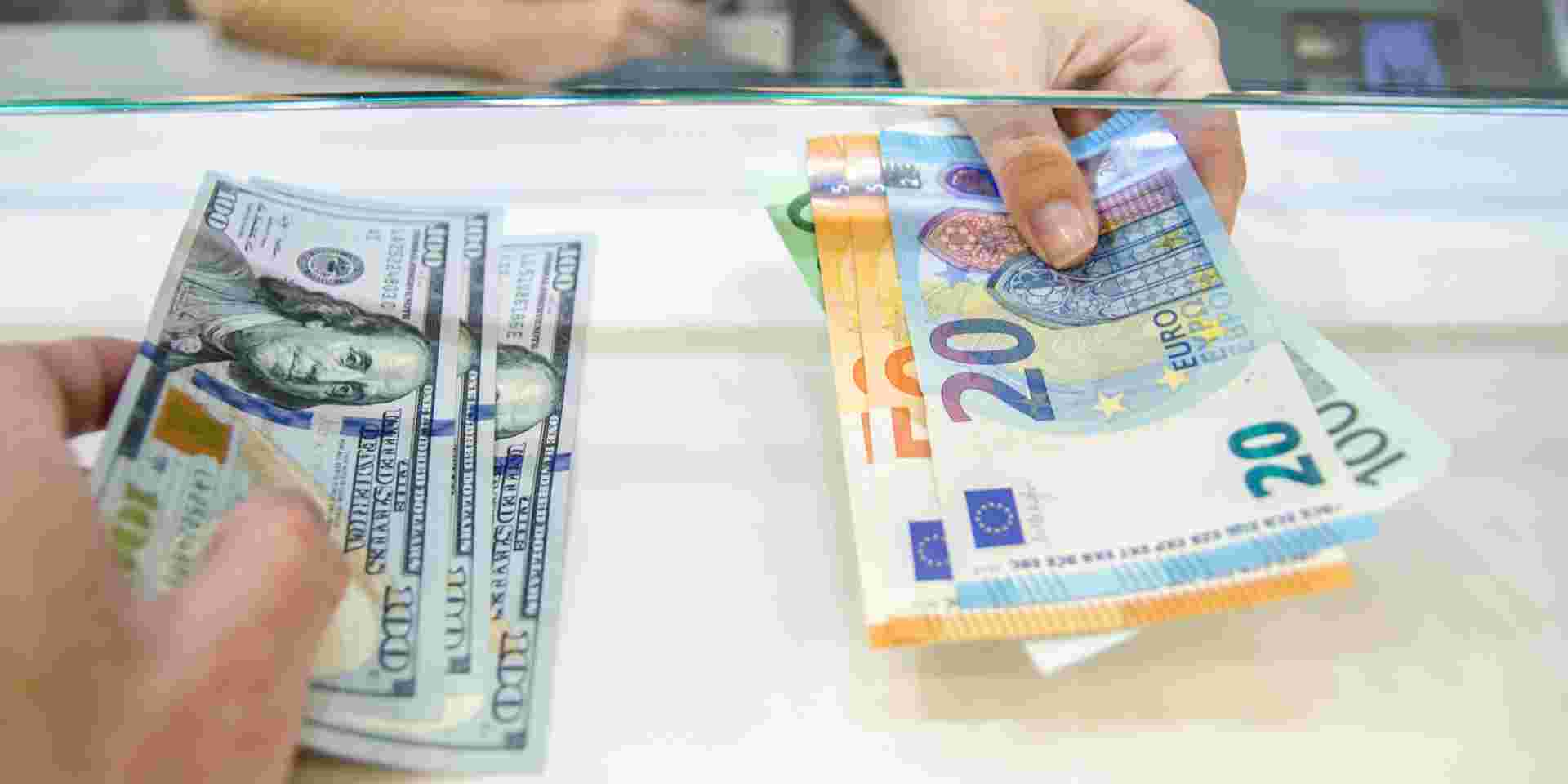Does Greece Accepts US Dollars: What You Should Know

Planning a trip to Greece? You may have questions about money there. The currency used in Greece is the euro (€). It helps to know the exchange rate so you can plan your budget. Greece is part of the European Union and the eurozone, but using US dollars can be hard. This guide will help you learn about money in Greece. You will feel better about handling your money while you travel.
Currency Use in Greece
Greece began using the euro in 2002, replacing the drachma. Now, the euro is the only money used for buying and selling in the country. You will likely not see businesses using the drachma these days. However, some people may still refer to smaller amounts of money by old names.
The official currency of Greece explained
Greece is part of the European Union. Its official money is the euro (€), shown as “EUR.” The euro took the place of the Greek drachma on January 1, 2002. This change makes it easier for travelers from other eurozone nations. They can use the same money while in Greece. But for travelers who come from outside the eurozone, like those from the United States, they must change their money for euros when they get there. They can also use credit cards to pay while in Greece.
Are there any good reasons to use cash instead of cards in Greece?
In Greece, credit and debit cards are common, but it’s smart to carry some cash too. This is key for buying from street vendors or small souvenir shops. Cash is helpful in rural areas where cards might not work. It’s also good if you’re vacationing on a Greek Island and you want to tip your servers at the restaurants, cafes, and bars. Remember, having smaller bills is usually better.
Tipping etiquette in Greece
In Greece, people enjoy tipping to show thanks for good help. When you eat at a restaurant, it’s common to leave a bit more money. This is usually around 5-10% of your total. You can also round your bill up to the closest euro. It’s also nice to tip when you use other services. This includes taxi drivers and staff in cafes and bars.
If you want to know more about tipping in Greece read our comprehensive guide here!
Does Greece Accepts US Dollars: The Reality
In Greece, you may see that some tourist spots and big cities take US dollars. However, this is not usual. The main currency in Greece is the Euro. It is better to use the local money to avoid high exchange rates and extra fees. Credit cards from major companies, like Master Card, Visa, and American Express, are widely accepted, especially in developed areas. It is wise to have some cash for small shops or transactions. Still, relying only on US dollars may not be the best choice because of issues with currency changes.
Places where US dollars might be accepted
In some places, you might find US dollars accepted in busy tourist spots or by street sellers looking for a fast sale. However, you should not rely on this. Even if a seller says they will accept US dollars, the exchange rate may not be favorable. This could cause you to lose money when you exchange your cash.
Using US dollars in Greece can be hard. Here are some problems you might face:
– A few stores do not accept US dollars, so you may need to change your money.
– Exchange rates can be high, which means you get less value for your dollars.
– Banks may charge fees to convert dollars into euros.
– If you buy something in US dollars, you may have to deal with extra paperwork.
These issues can make transactions tricky when you use US dollars in Greece.
The main problem with using US dollars in Greece is that they are not legal money there. The exchange rate you get can vary from seller to seller and may be low. Even if a store accepts US dollars, they will need to change them into euros after. This can cause bank fees and losses due to changing rates. It’s also common to have trouble getting change for large US dollar bills.
Currency Exchange in Greece
When you change your home money to euros for your trip to Greece, it is important to know the different ways to do it. Knowing the best ways to exchange currency can help you get better rates for your money.
One common way to exchange money is by using local banks or exchange services. These places usually offer good rates and helpful services for travelers. However, it is smart to compare rates and fees from different options to get the best deal.
Another way is to use ATMs in Greece to get euros directly from your bank. This can be easy, but watch out for any costs like transaction fees or ATM charges. Also, let your bank know about your travel plans ahead of time. This will help avoid any problems with getting money while you are away.
Some travelers choose to exchange their money at airports or hotels. However, these places usually charge more fees and give poorer exchange rates. It is better to exchange just a small amount of cash at these locations for urgent costs. For bigger exchanges, look for better rates in other places.
Lastly, think about using trusted online currency exchange platforms or apps. They let you order euros at good rates. You can have them delivered to your home or pick them up at specific places.
By learning about these currency exchange options and using good tips, you can get the most value for your money when changing it to euros for your trip to Greece.
Best practices for currency exchange
When you exchange money in Greece, be careful about fees and exchange rates to get the best value. Choosing to change money at local banks or trusted exchange places can help you avoid extra charges. It’s important to know the current exchange rate to make sure you are getting a fair deal. To lower transaction fees, think about exchanging a bigger amount in one go.
Avoid exchanging money at airports or tourist spots. The rates there usually are not as good as at banks or official exchange places. For important purchases, using your credit card is a smart choice. You can also check if dynamic currency conversion helps you. However, be careful of extra fees when using your card in another country.
Keeping an eye on your spending is important. It helps to avoid running out of cash when you don’t expect it. By planning ahead and making smart choices about currency exchange, you can use your money wisely while traveling in Greece.
It’s a good idea to learn about the local customs and manners for money handling in Greece. Tipping rules can change from place to place. Knowing what is usual in Greece can help you handle these moments well.
Think about using mobile banking apps or online services that give better exchange rates and lower fees than traditional ways. These digital options not only make things easier but also show you clearly what the costs are for currency exchanges.
Lastly, keeping watch on global events or changes in the economy can help you decide the right time to change your money. Being active and flexible in how you handle currency exchange can make your trip to Greece even better.
Avoiding common pitfalls in currency exchange
Dynamic currency exchange can lead to extra costs. It is a good idea to avoid this exchange when using your card in Greece. Be careful about high fees some credit card companies charge for foreign transactions. When you change money, compare rates from different places to avoid bad exchange rates. Exchanging cash at local banks usually gives better rates than exchange offices. Also, watch for ATM withdrawal limits to help you do fewer transactions and pay less in fees. Planning ahead is important. This helps reduce last-minute currency exchanges, especially in tourist spots where rates may not be good. By keeping these points in mind, you can manage your money well and save on extra costs while in Greece or anywhere else abroad.

The Convenience of ATMs in Greece
Finding ATMs, or “cash machines,” is easy in Greece. Greek banks have many ATMs. This makes it simple for you to get your money, especially in cities. So, it’s easier and faster for you to withdraw money from the ATM and have all the time in world to explore Athens’ top attractions or experience the Flavors of Athens!
How to find and use ATMs in Greece
ATMs are all over Greece. You will see them in cities and popular places for tourists. They can be found in Greek banks like the National Bank of Greece, Alpha Bank, Eurobank, and Piraeus Bank. You can also find them in many convenient spots, such as:
- Grocery Stores
- Airports and Ferry Ports
- Subway Stations
- Popular Tourist Spots
Fees, charges, and other things to be aware of
Using ATMs in Greece is mostly simple, but there might be some costs. You will have to pay a fee from your bank at home each time you get cash. Also, Greek banks usually charge a small fee when you use a card from another country, which is about 2-4 euros. It is smart to ask your bank about their fees and if they have any agreements with Greek banks to lower these costs.
Also, keep in mind that in remore areas of Greece, such as in mountainous and seaside villages in Greece‘s mainland, the ATM’s can run out of cash. Therefore, it is wise before you visit those lovely destinations, to have anticipated this factor and carry the money you need.
Avoiding high fees when using ATMs in Greece
To save money on ATM fees, try to take out larger amounts less often. This helps cut down on foreign transaction fees. It is also a good idea to choose to be charged in the local currency (euros) instead of your home currency. This will help you avoid dynamic currency conversion, which often gives you a poorer exchange rate.
The Role of Credit and Debit Cards
Credit cards are often used in Greece, mainly in cities and for larger purchases. Most places that cater to tourists take major credit cards like Visa and Mastercard. However, in smaller villages or rural areas, it is smart to find out if they take cards before you go. It’s also a good idea to have some cash ready, just in case you need it, especially when visiting small shops.
Are credit cards and debit cards accepted in Greece?
The use of credit and debit cards in Greece has increased a lot recently. Major cards like Visa and Mastercard are common in cities, tourist areas, hotels, and restaurants. It’s a good idea to check before you go, especially in smaller places or for small buys, to see if they take cards. This can help you avoid issues.
Safety tips for using your credit card in Greece
Using your credit card in Greece is generally safe. However, it’s important to take safety steps to prevent fraud:
- Tell Your Card Issuer: Let your credit card company know when and where you will be traveling. This helps to stop your card from being seen as having strange activity.
- Guard Your PIN: When you use your PIN at ATMs or stores, be careful. Cover the keypad and keep an eye on what’s happening around you.
- Check Your Statements: Look at your credit card statements often. Watch for any charges you don’t know. If you find any, tell your credit card company right away.
What if my card does not work in Greece?
If your card does not work in Greece, here are some things to try. First, check your balance to see if you have enough money. Next, contact your bank to find out if there are any issues with your account. You may also want to use another payment method, like cash or a different card. Always notify your bank when you travel. This can help avoid problems when you try to use your card abroad.
Experiencing a declined card can feel stressful. It’s important to stay calm and practice these steps:
- Check Funds: Make sure you have enough money or credit in your bank linked to the card.
- Contact Your Bank: Call your bank or credit card company. Ask why the card was not accepted. They can usually solve the issue fast, especially if it was blocked for safety reasons.
- Other Payment: Have other ways to pay ready. This can be another credit card, your debit card, or some cash.
Greece mainly uses the Euro as its official money. However, travelers should know that US dollars can be used in some places. It is important to know about the issues and limits when using US dollars in Greece. Currency exchange, ATM use, and credit card safety are key for managing your money well while you visit. By following good tips for currency exchange and being careful with fees, you can handle your finances better during your trip to Greece. Stay smart and aware to enjoy your money interactions in this beautiful Mediterranean country.
Feeling Ready?
From our blog

How Many Days in Mykonos
READ MORE
Santorini Travel Guide: Everything You Need to Know
READ MORE
Where to Stay in Mykonos: Insider’s Guide
READ MORE
Mykonos Hotels: The Ultimate Guide to Luxury Stays
READ MORE
What to Wear in Greece to Not Look Like a Tourist
READ MORE
Best Time to Go to Mykonos
READ MORE
The Best Time to Visit Santorini: A Local’s Guide for Every Season
READ MORE
Insider’s Guide to Weather in Italy and Greece in September
READ MORE
Weather in Italy and Greece in October: Your Complete Guide
READ MORE



